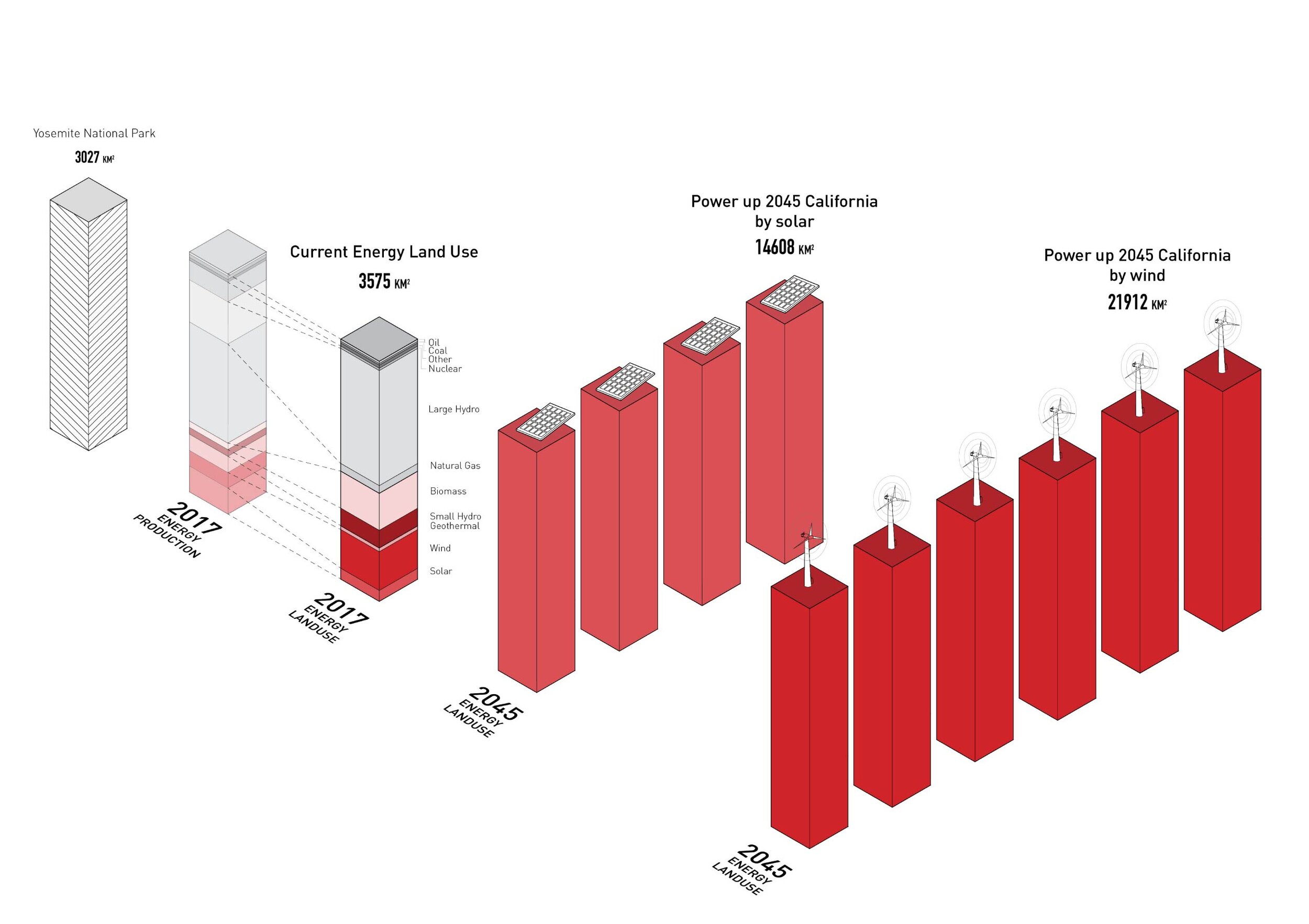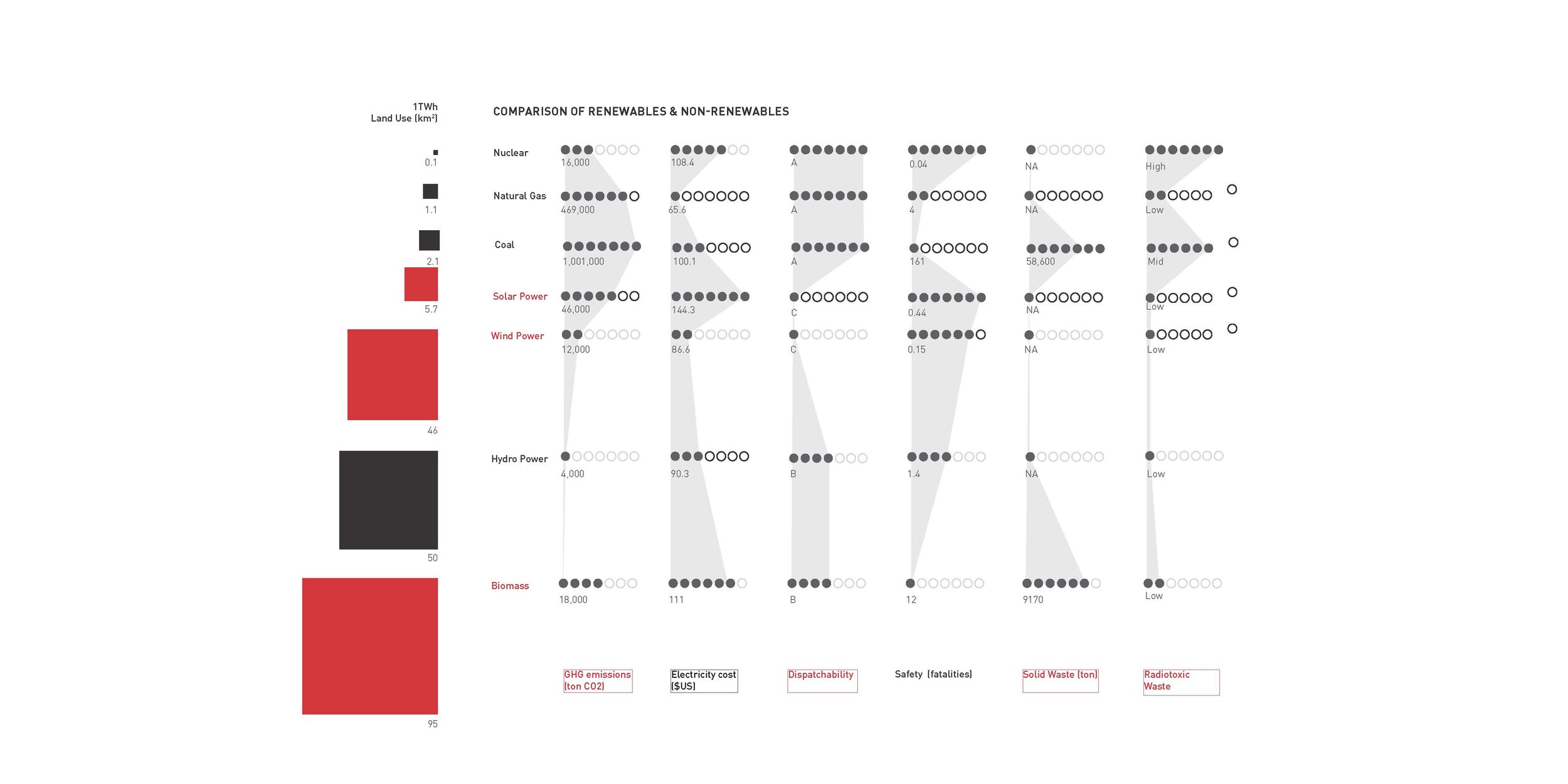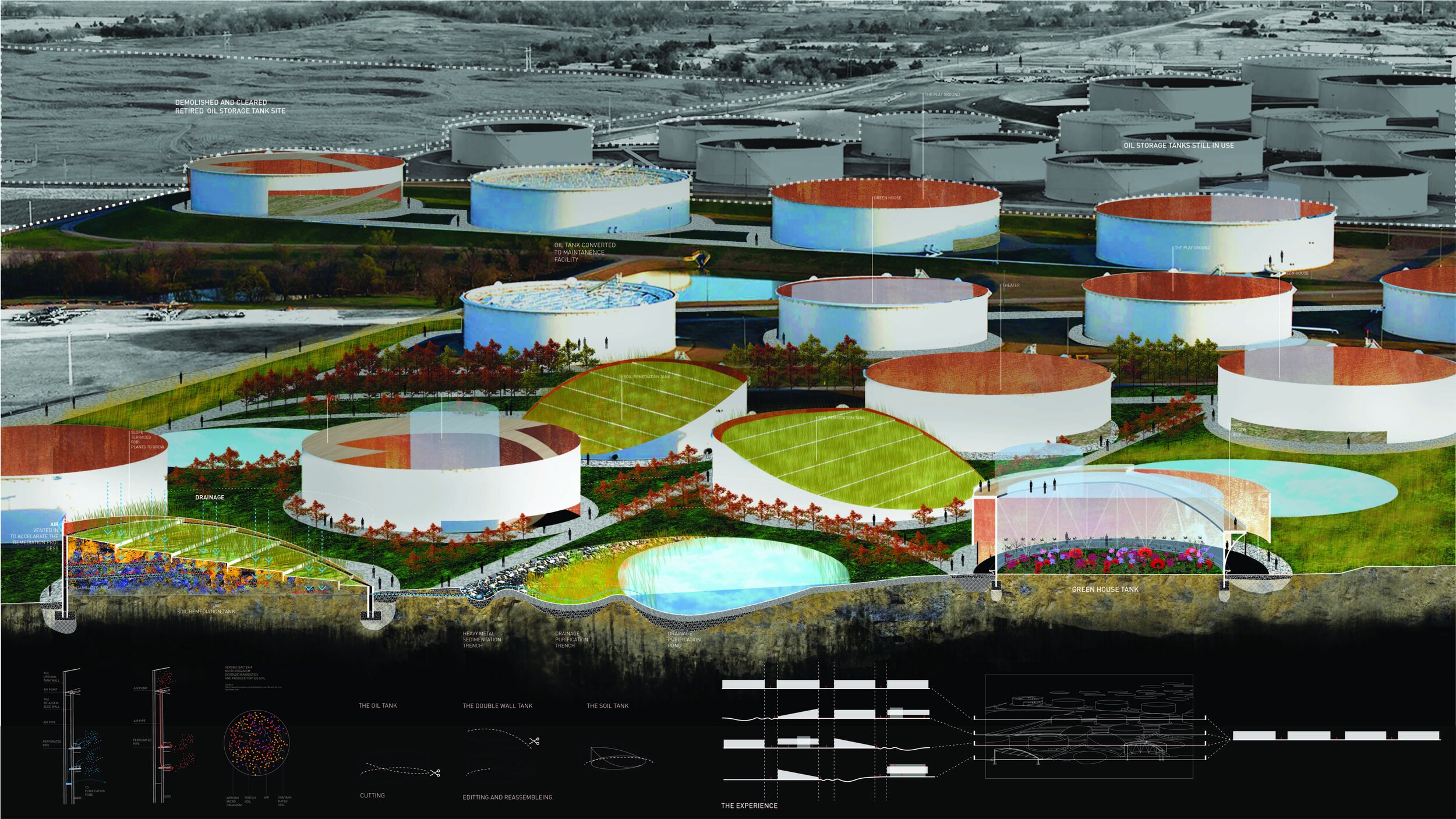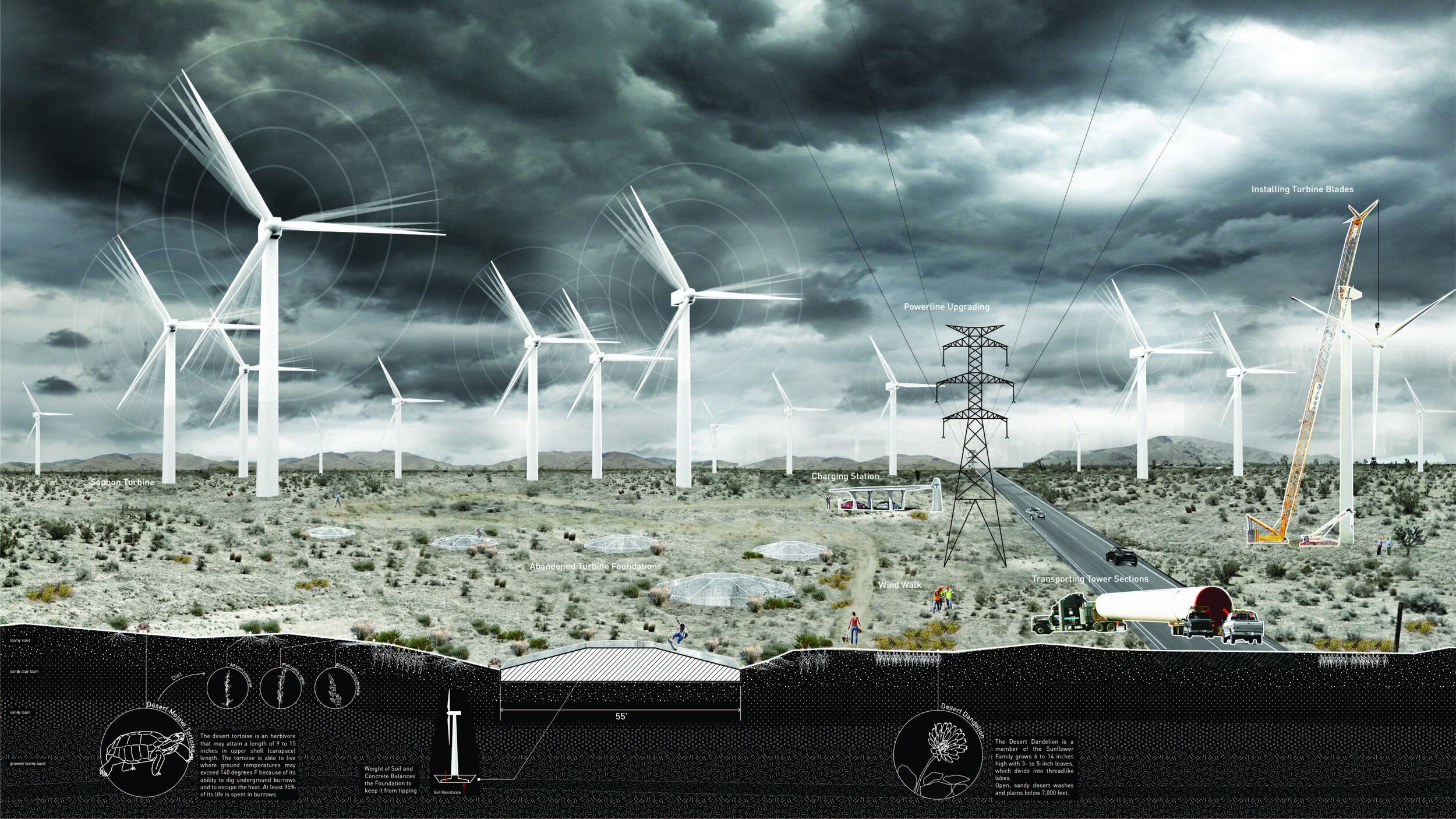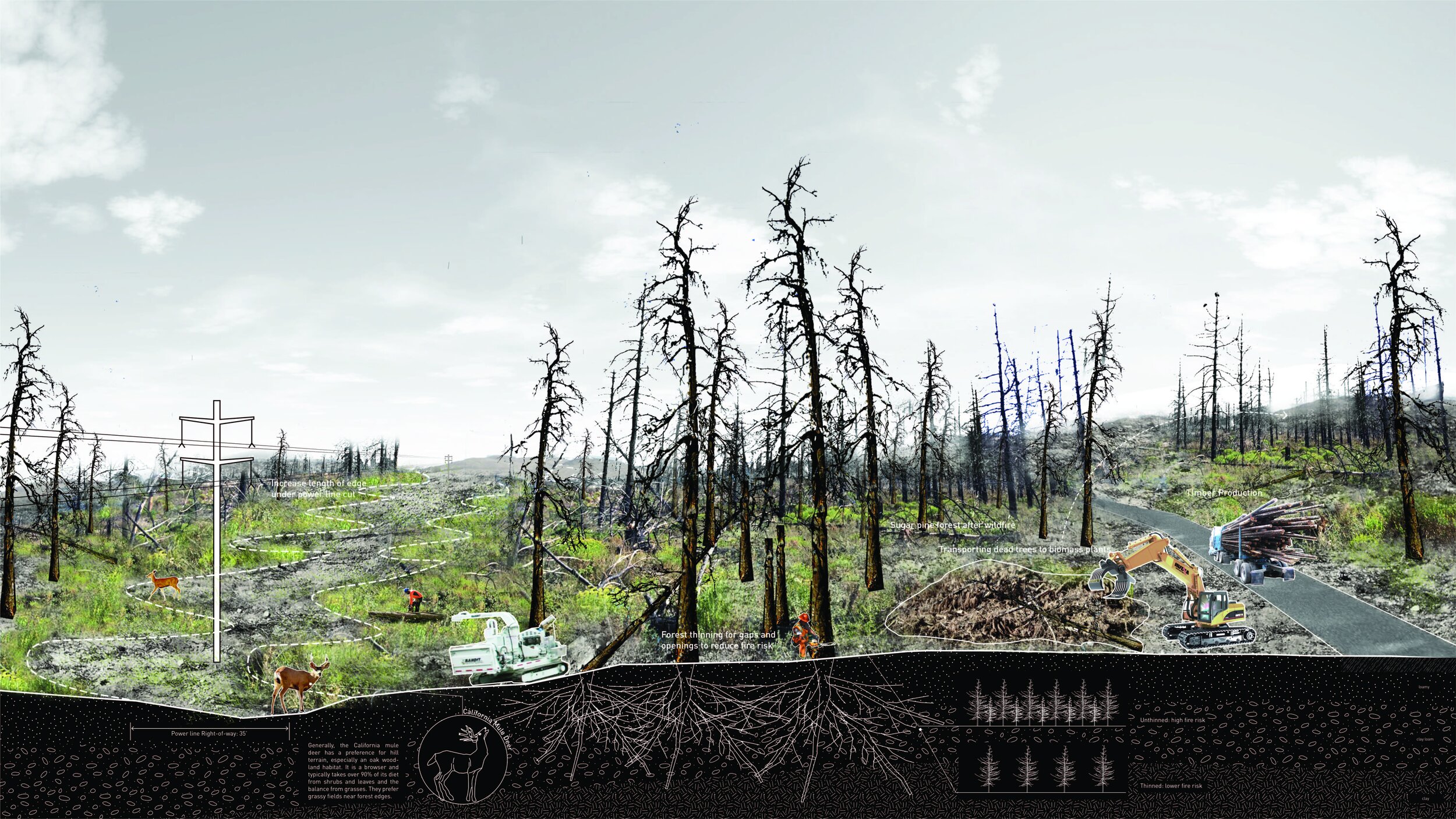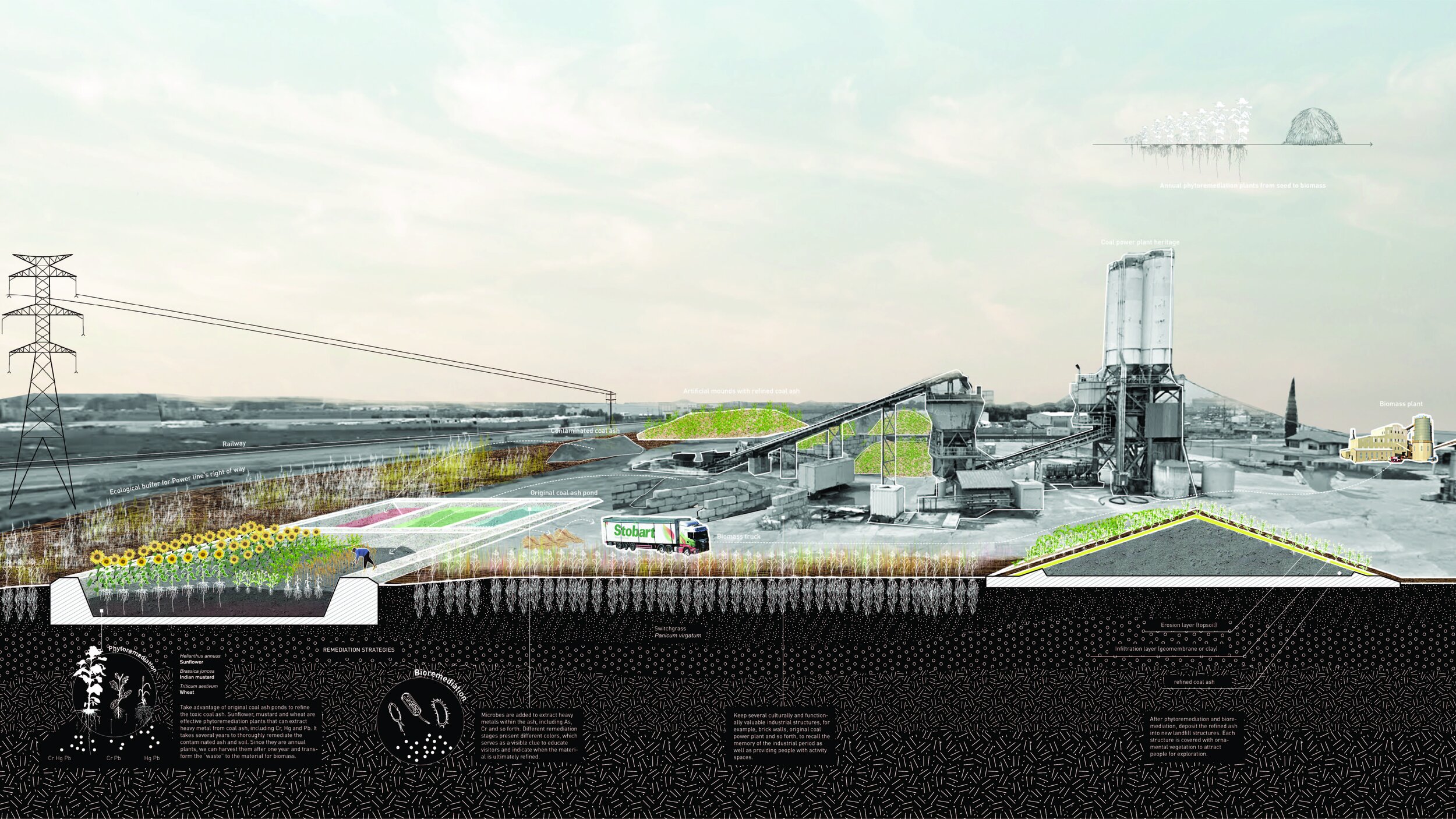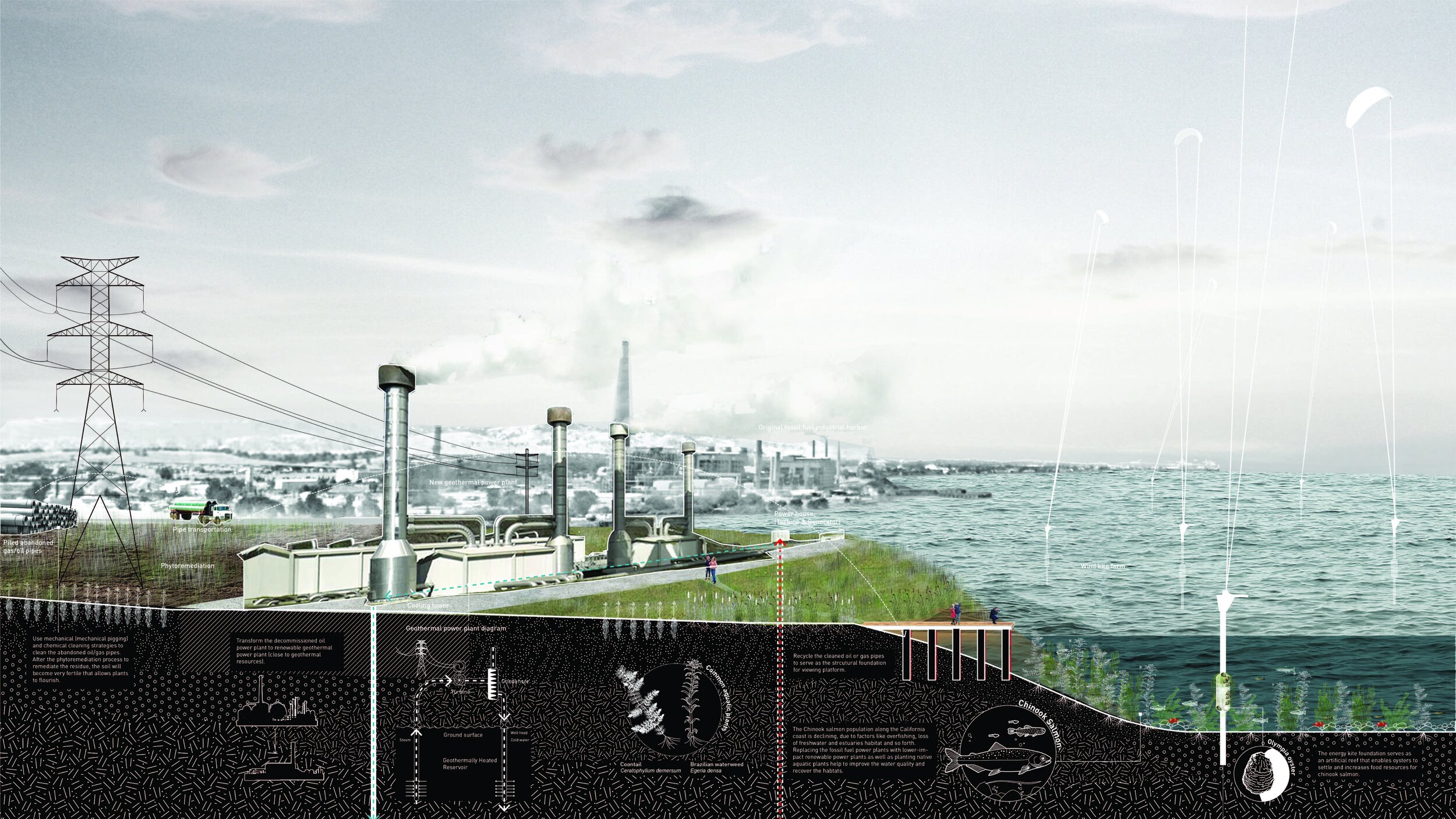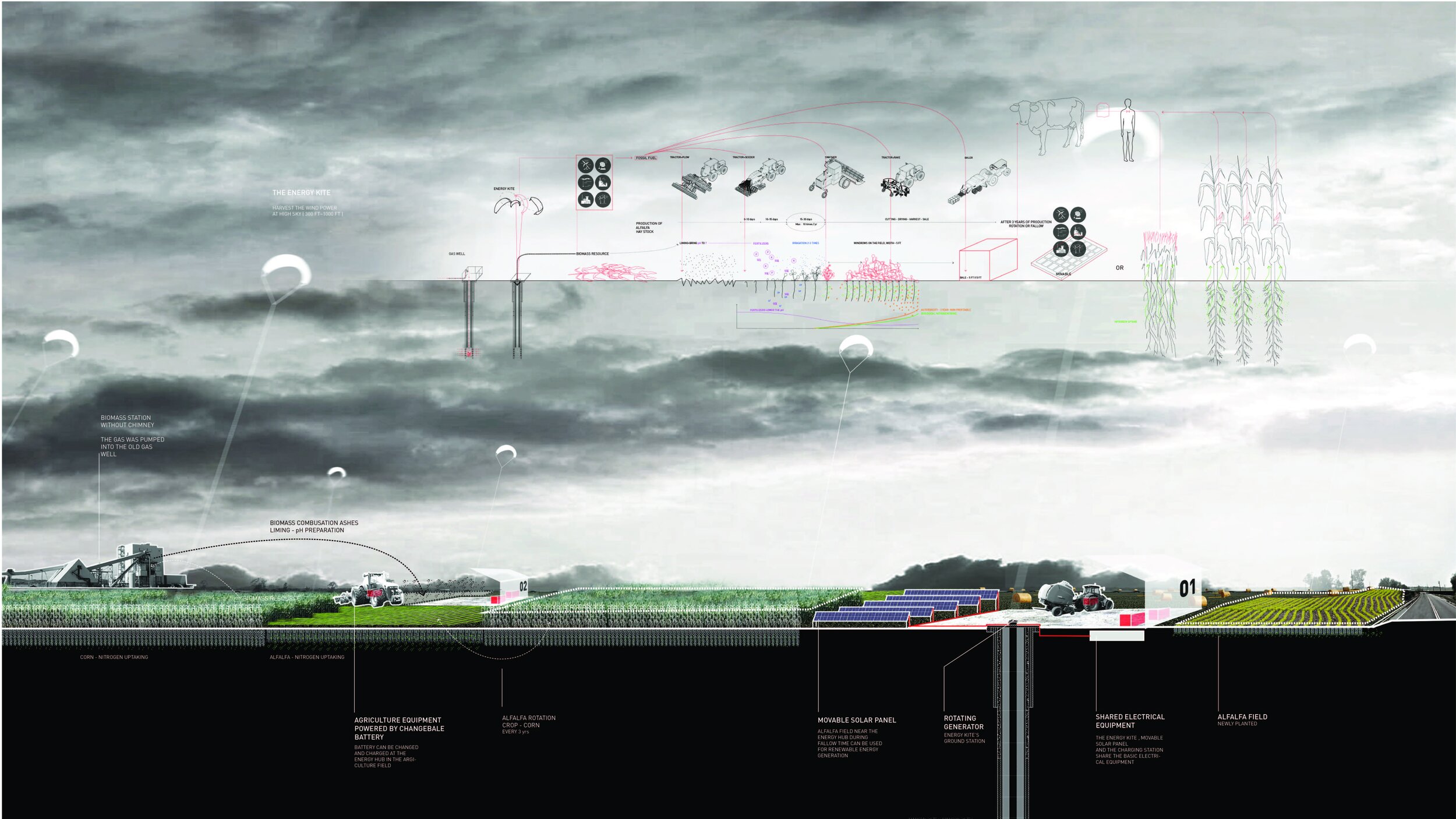The Next Landscape
by Yangqianqian Hu, Hangxing Liu, and Qinmeng Yu
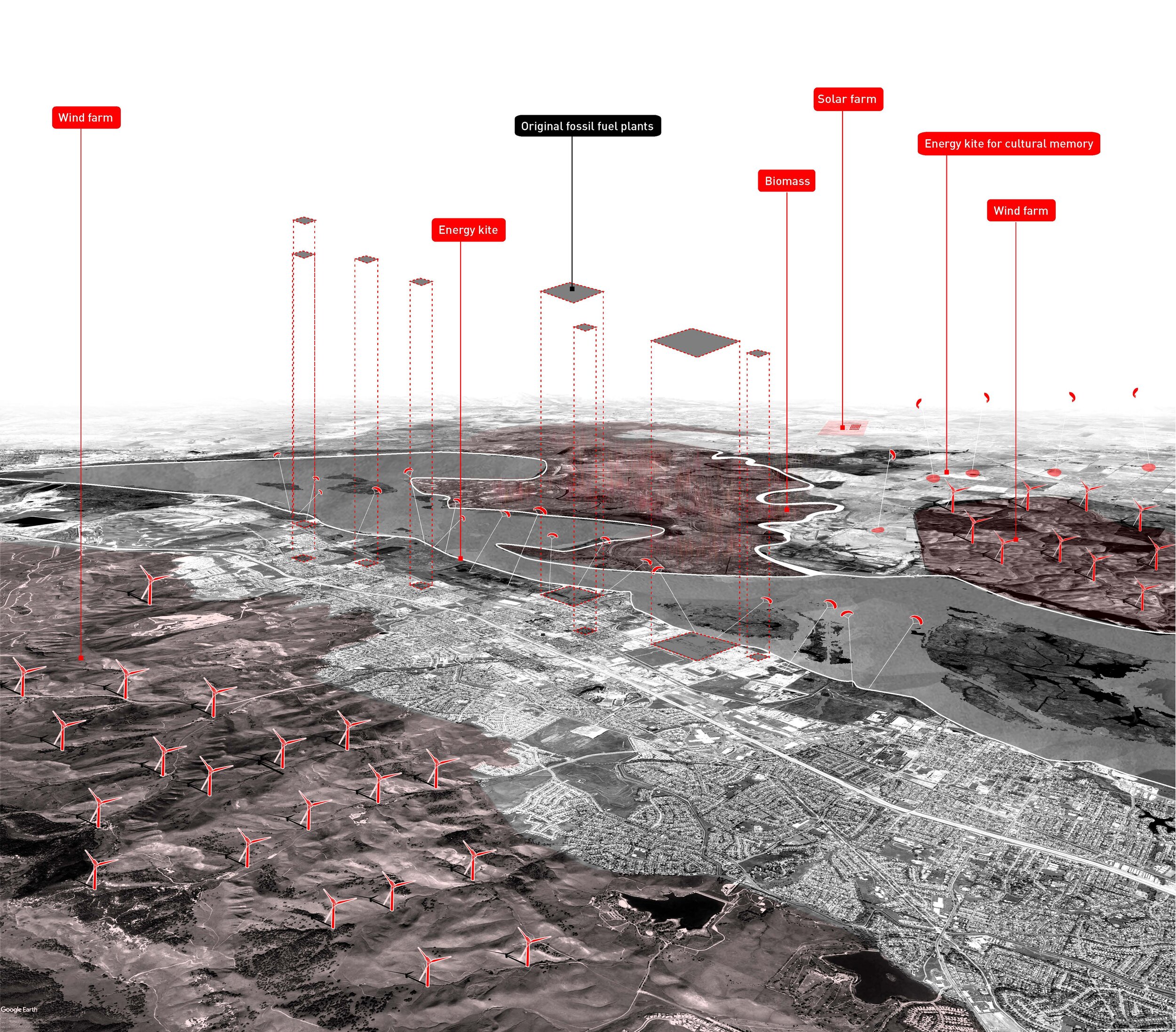
“We are skeptical about environmentalism and the assumption that energy consumption does harm to ‘nature,’ therefore humans should reduce consumption. We also question eco-modernism, which denies the fact that ‘pristine nature’ has been greatly altered by humans and technologies such as the energy industry. Both of these views reinforce the illusory boundary between technology and nature. This boundary is further reflected in the complex and huge infrastructure landscapes that support the energy industry, which are isolated from people and their lives. We believe that the ‘in-between’ space should be acknowledged.”
“The area needed for a 100% renewable California by 2045 is 20,000 square kilometers, which is 40 times the area of San Jose.”
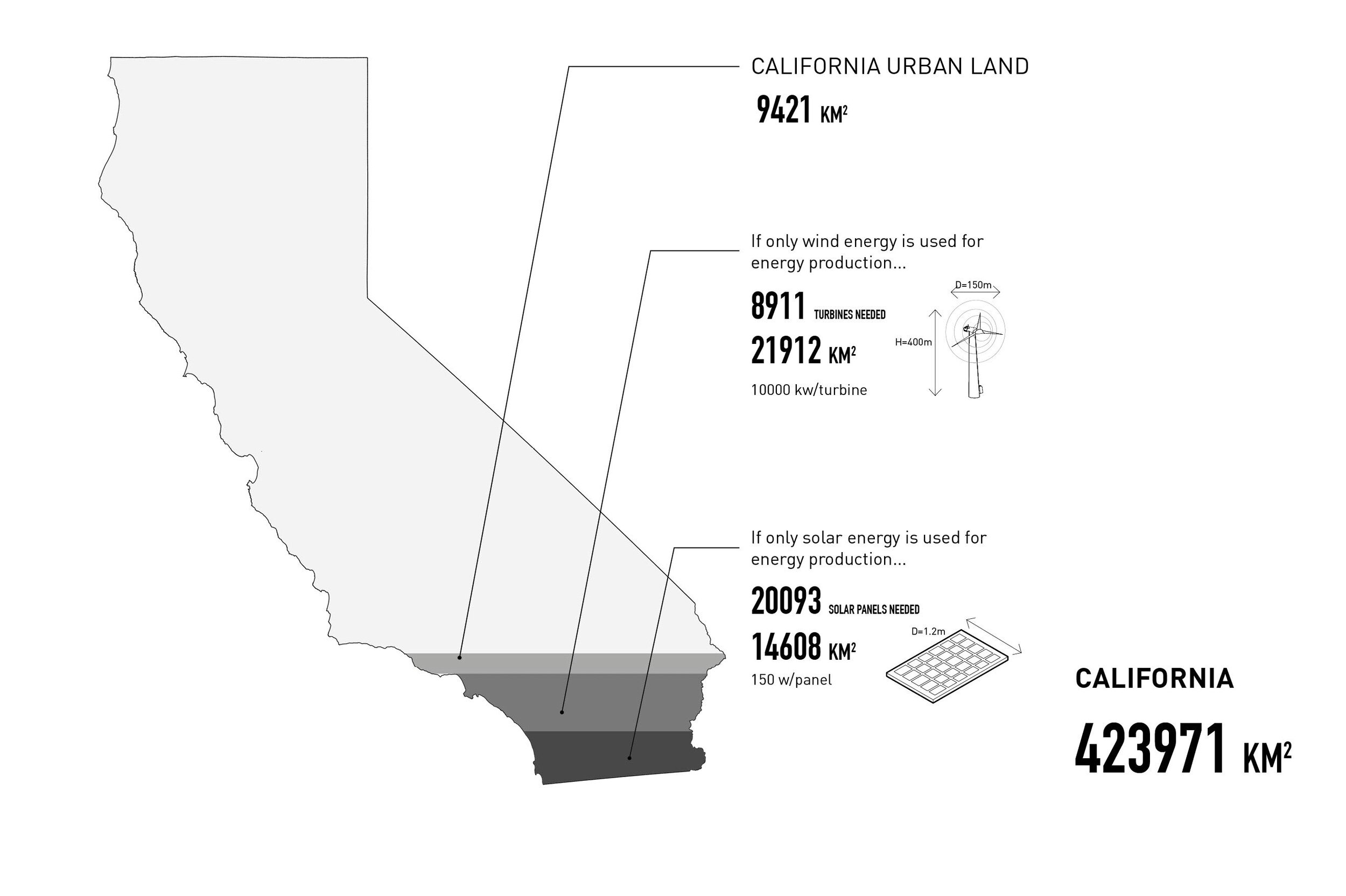
“Since renewable energy consumes more landscape, it is a great opportunity for landscape architects to intervene in the in-between space of technology and nature.”
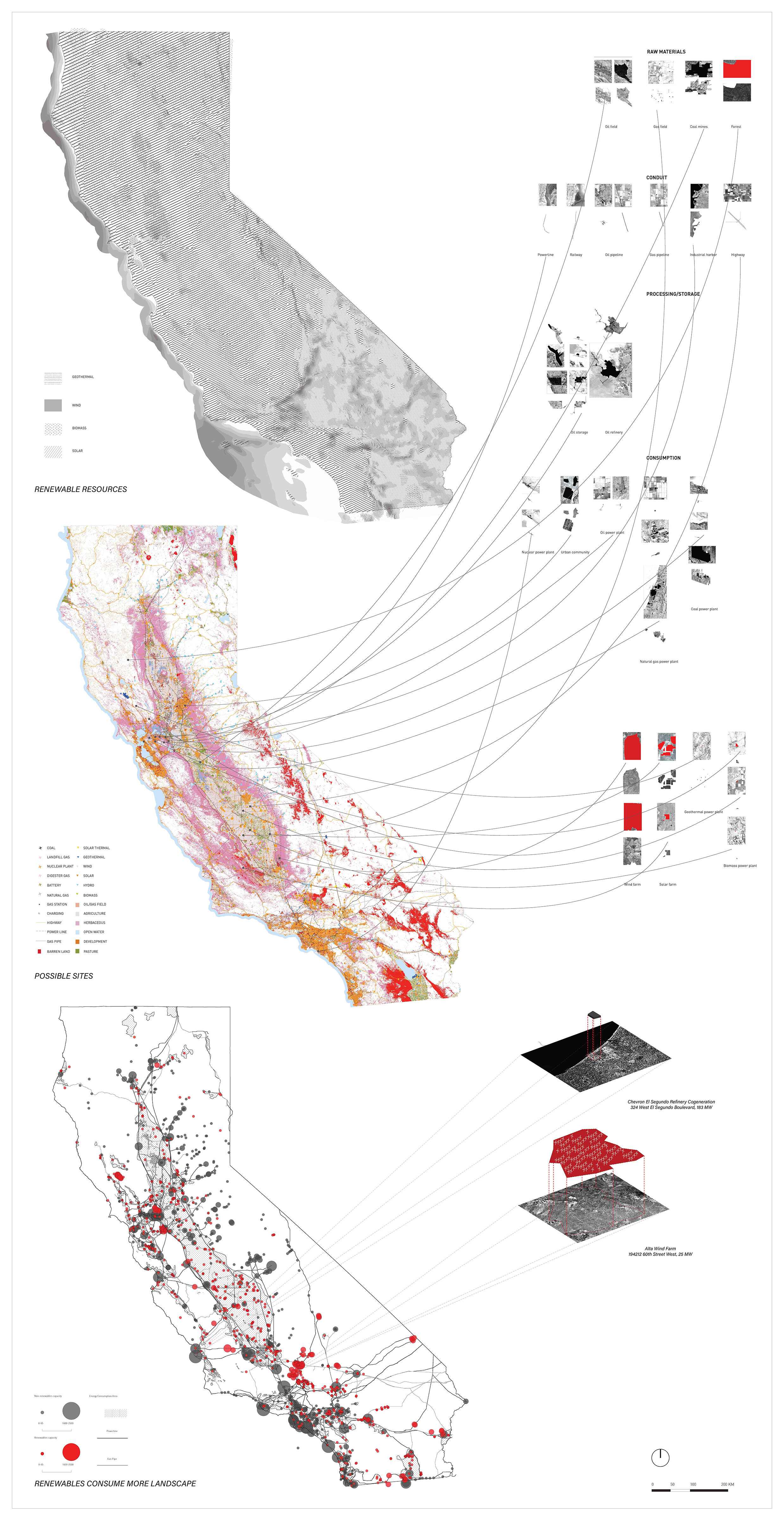
“…to understand how varying energy generation technologies consume the landscape, we traced our main target land-use type—current energy industry lands—from raw material extraction sites to consumption ends. We propose that these post-fossil fuel energy landscapes—such as oil storage facilities, natural gas fields, post-coal power plants, post-industrial harbors, mixed-use wind farms, and post-wildfire forests—are prime opportunities to reimagine the energy landscape of the future.”
Read the full article in Issue 09: ONWARD.
The Next Landscape team is three MLA students from University of Virginia: Yangqianqian Hu (MLA ‘20), Hangxing Liu (MLA ‘19), and Qinmeng Yu (MLA ‘20). We are fascinated by speculating about future endeavors our profession could expand upon and the role landscape designers take in upgrading infrastructure systems. The Next Landscape was a UVA studio project co-taught by Professors Bradley Cantrell, Andrea Hansen Phillips, and Brad Goetz and teaching fellow Zihao Zhang in the Spring of 2019.

